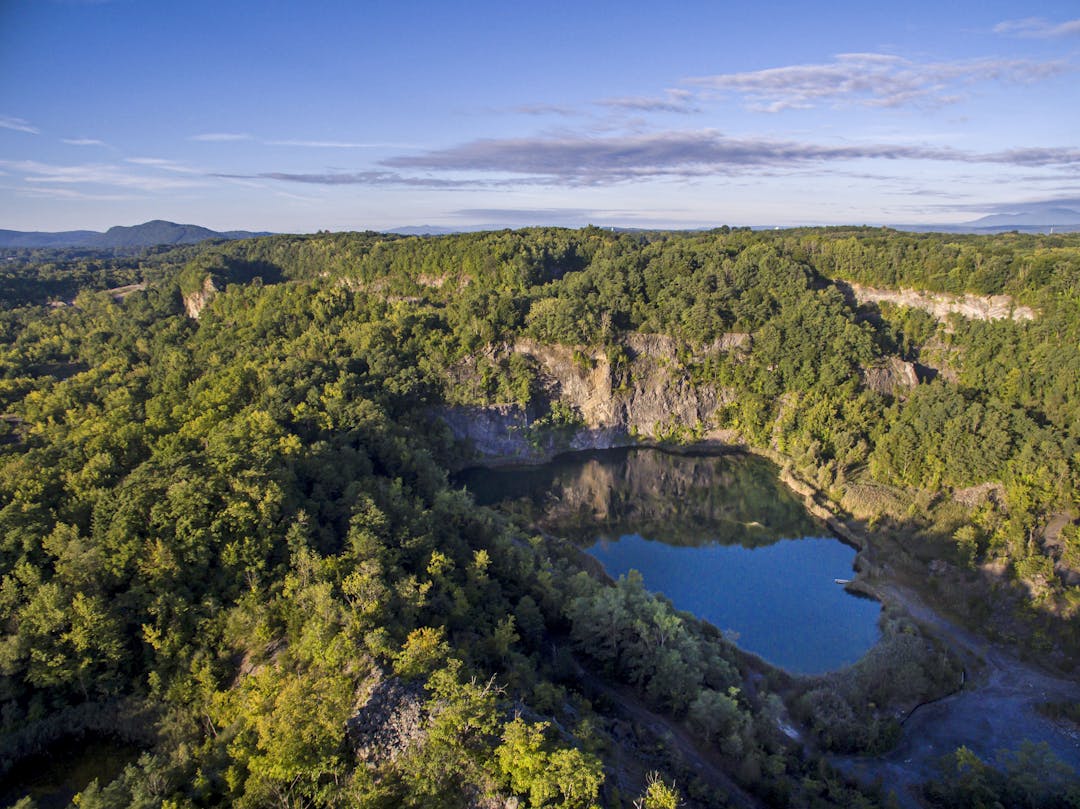Community Preservation Plan

Use el botón de traducir en la parte superior derecha para españolUPDATE: On the November 2024 ballot, Kingston’s Community Preservation Fund passed, and went into effect on December 15, 2024.
To file, the Transfer Tax form can be found at the Ulster County Clerk’s website here: https://clerk.ulstercountyny.gov/countyclerk/land-records/recording-deed.
To apply to serve on the Community Preservation Advisory Board, click here.
Effective December 15, 2024, every person recording a conveyance of real property located in the City of Kingston, must at the same time file a City of Kingston Transfer Tax Form with the Ulster County Clerk and pay the required amount of tax due, if any. This Transfer Tax applies to ALL PROPERTY CONVEYANCES (residential and commercial included) above the median residential sales price for Ulster County $376,500.00 (on or after April 7, 2024) or $425,000.00 (on or after April 16, 2025). The real estate transfer tax shall be paid by the buyer.
With funding support from the NYSDEC Hudson River Estuary Program, the City of Kingston is preparing a community preservation plan (CPP) that will build upon the city’s solid foundation of prior work.
As of 2019, the Community Preservation Act has been amended by NYS to include Ulster County. This legislation offers the City of Kingston an opportunity to protect open spaces and natural resources, environment, and community character. The law allows communities to develop a reliable, ongoing source of funding without increasing annual property taxes for residents for:
- Parks
- Trails
- Lands conservation
- Historic preservation
Such a program must be based on priorities identified in a Community Preservation Plan. The communities of New Paltz, Warwick, and Red Hook have all adopted Community Preservation Plans.
Legislation and required elements of CPP
This plan shall list every project which the designated community plans to undertake pursuant to the community preservation fund. It shall include every parcel which is necessary to be acquired in the designated community in order to protect community character. Such plan shall provide for a detailed evaluation of all available land use alternatives to protect community character, including but not limited to:
- fee simple acquisition
- zoning regulations, including density reductions, cluster development, and site plan and design requirements
- transfer of development rights
- the purchase of development rights, and
- scenic and conservation easements.
Such evaluation shall be as specific as practicable as to each parcel selected for inclusion in the plan. The plan shall establish the priorities for preservation. Funds from the community preservation fund may only be expended for projects which have been included in said plan.
A community preservation plan can be used to identify priorities for…
- Parks, nature preserves, wildlife refuges, greenbelts and recreation areas
- Lands of exceptional scenic value
- Protection of wetlands
- Aquifer recharge areas
- Rare or endangered habitats or unique or threatened ecosystems
- Public access to land for recreational use
- Protection of rivers, streams and waterways wetlands and shorelines
- Preservations of historic places and properties
- Viable agricultural lands
A community preservation plan cannot be used to identify priorities for…
Housing
Unfortunately, the Community Preservation Plan cannot be a tool to preserve affordable housing. New York State Legislators have discussed including housing in the NYS Community Preservation Act, however until housing is encompassed in the law, we cannot use the Community Preservation Plan or a subsequent fund to address housing issues in the City of Kingston. Here is the legislation.
The City of Kingston is supporting affordable housing in a number of ways and the Department of Housing Initiatives is tasked with many of these projects. They manage housing-related grants, support the construction of new market-rate and affordable housing, develop policies to protect existing residents, and address the connection between housing and sustainability, health, and mobility. The Department also reviews the disposition of city-owned property suitable for housing development and collaborates with local and regional housing organizations.
- Specific housing initiatives the City is advancing include:
- City's Anti-Displacement and Tiny Homes Project
- Kingston Forward: Citywide Rezoning
- City of Kingston Surplus Properties
- Kingston Land Bank
- Short Term Rental Enforcement and Registration Process
- Housing Emergency Declaration Based on New Vacancy Study
- Landlord-Tenant Mediation Program
- Good Cause Eviction
- For more information about the City’s Housing Initiatives, see https://kingston-ny.gov/housing
Sewer and stormwater infrastructure improvements
There are many initiatives that the City is working on to advance stormwater and sewer infrastructure including:
- Storm sewer separation
- Green infrastructure including locations such as Broadway, Kingston Point and others
- Downspout disconnections
- Repair and replacement of antiquated infrastructure
Direct funding for sewer and stormwater infrastructure improvements are sourced by the City from Local, State and Federal sources including the DEC Water Quality Improvement Program and the Climate Smart Communities Program, FEMA, the Environmental Facilities Corporation Wastewater Infrastructure Engineering Planning Grant Program, the Green Infrastructure Grant Program, and through MS4 compliance.
For more information about the CIty’s Sewer and Stormwater Initiatives, see https://kingston-ny.gov/content/8399/8469/8537/8604.aspx
Road infrastructure improvements
The City has a number of funding sources and initiatives that support road infrastructure including CHIPS and PAVENY on an annual basis. In addition, we anticipate federal infrastructure funding to become available in the near future. The Department of Public Works, with the Engineering Department, have short and long term strategies and solutions for addressing road infrastructure, none of which can be supported by Community Preservation Funding.
For more information about the City’s Transportation Infrastructure, see the other projects here on EngageKingston.com.
The Final Plan is available here.

This Project has been funded in part by a grant from the New York State Environmental Protection Fund through the Hudson River Estuary Program of the New York State Department of Environmental Conservation.
Photos by Robert Rodriguez, Jr. / Courtesy of scenichudson.org






